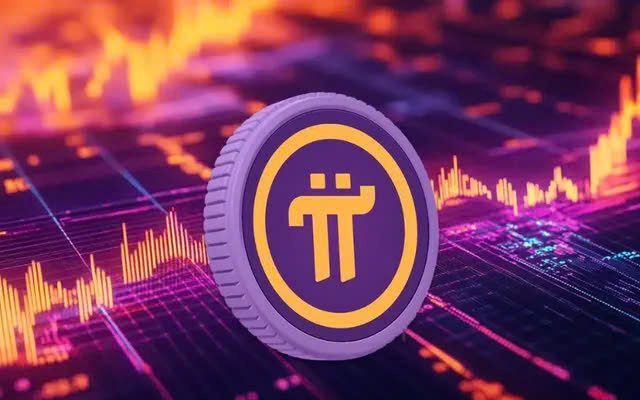By
Lien Thuong, Minh Hue
Wed, February 26, 2025 | 12:39 pm GMT+7
The Pi Network craze may be one of the factors influencing and accelerating the development of digital currencies in Vietnam in a transparent and professional manner, ensuring they align with new financial forms.

Pi Network officially began trading on exchanges on February 20, 2025. Photo courtesy of Vietnam Television.
During a meeting with the Party Central Committee’s Commission for Policies and Strategies, Party General Secretary To Lam emphasized the importance of not delaying the development of digital currencies, seizing opportunities, and avoiding the creation of gaps or isolation from new financial forms and modern transaction methods.
His statement highlights the potential for legalizing the management and use of digital currencies in Vietnam, especially as cryptocurrency transactions gain global acceptance, with many individuals achieving significant profits from virtual currencies like Bitcoin.
However, legal risks, such as fraud and unclear cryptocurrency investment schemes, still pose a challenge, as demonstrated by recent cryptocurrency scams dismantled by police.
Notably, for the first time in Vietnam, regulations regarding digital assets have been incorporated into the draft Law on Digital Technology Industry.
On January 6, during a session to gather opinions on the bill at a meeting of the National Assembly’s Standing Committee, Le Quang Huy, Chairman of the Committee on Science, Technology, and Environment, stated that some voices argued digital assets are a new and rapidly evolving issue, requiring more research and careful review, and should be further detailed by the government. Others suggested that more studies are needed to identify the types of digital assets that should be included in the draft law.
To gain further theoretical and practical insight, the Committee on Science, Technology, and Environment has collaborated with relevant specialized agencies, he added.
Pi Network, one of the most talked-about digital currencies, officially began trading on exchanges on February 20, causing a “storm” in social media groups and forums.
As of 8 a.m. on February 25, Pi was priced at around 1.5 USDT/Pi (equivalent to $1.5), a 30% decrease from the 2 USDT value when it was listed at 3 p.m. on February 20.
However, when taking into account its payment application, Pi Network is violating the Vietnamese law. According to the government’s Decree 80/2016 on non-cash payments, virtual currencies are not considered legal payment instruments in Vietnam.
Decree 88/2019, amended by Decree 143/2021, also stipulates administrative penalties in the currency and banking sector, including those for issuing, providing, or using virtual currencies as payment methods.
These regulations are critical for the future development and management of Vietnam’s digital currency market, especially as the draft Law on Digital Technology Industry emphasizes transparency and professionalism, aiming to prevent scams and fraudulent investment schemes that have resulted in significant financial losses for many individuals in recent times.

